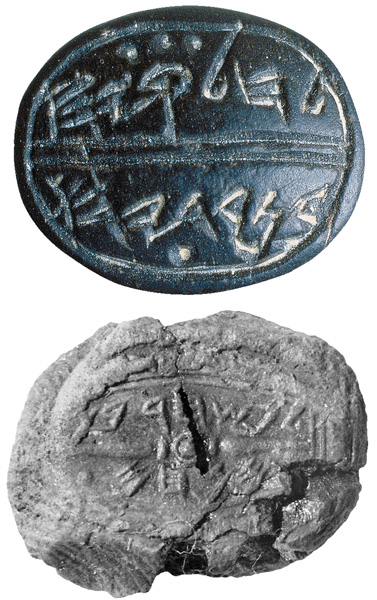Image Details

The Israel Museum, Jerusalem
Much of the evidence for personal names in ancient Israel comes from stamp seals and their clay impressions (called bullae), which were used to seal letters and other documents. The top seal (shown reversed) belonged to a man with a fairly common Yahwistic name: H.ilqiyahu (“YHWH is my portion”) son of ‘Adayahu (“Yahweh has adorned”). The bulla below bears a theophoric name containing the god Horus: Pashhur (meaning “son of Horus”) son of Menahem.
Author Tigay compares the frequency of theophoric names in the Bible with those in extrabiblical inscriptions in the hope of determining whether the biblical editors might have deliberately removed non-Yahwistic names and thus distorted our view of ancient Israelite religious practices. But he found that the ratio of Yahwistic to non-Yahwistic names in extrabiblical inscriptions (94% to 6%, respectively) was similar to that in the Bible (91% to 9%)—showing that the Bible offers a fair picture of the vast popularity of theophoric names mentioning Yahweh.
